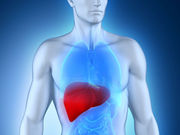More cost-effective than sorafenib monotherapy for HBV-related cancer
TUESDAY, May 3, 2016 (HealthDay News) — The addition of antiviral therapy to sorafenib is a cost-effective option compared with sorafenib monotherapy in patients with advanced hepatitis B virus (HBV)-related hepatocellular carcinoma (HCC) in China, according to a study published online April 27 in the Journal of Gastroenterology and Hepatology.
Pengfei Zhang, from Sichuan University in China, and colleagues created a Markov model comprising three health states (progression-free survival, progressive disease, and death). Medical records were used to derive efficacy data, while Chinese national drug prices were used to collect cost data.
The researchers found that in the base-case analysis, the addition of antiviral therapy to sorafenib generated an effectiveness of 0.68 quality-adjusted life years (QALYs) at a cost of $25,026.04, while sorafenib monotherapy gained an effectiveness of 0.42 QALYs at a cost of $20,249.64. For the antiviral therapy group versus the nonantiviral therapy group, the incremental cost-effectiveness ratio (ICER) was $18,370.77/QALY. However, when comparing patients with high or low HBV DNA load, the ICER was $16,613.97/QALY versus $19,774.16/QALY; with or without cirrhosis, $14,587.66/QALY versus $19,873.84/QALY; and normal or elevated alanine aminotransferase/aspartate aminotransferase, $17,947.07/QALY versus $18,785.58/QALY, respectively.
“Based on the cost-effectiveness threshold ($20,301/QALY in China), addition of antiviral therapy to sorafenib is considered to be a cost-effective option compared with sorafenib monotherapy in patients with advanced HBV-related HCC in China from the patient’s perspective,” conclude the authors.
Copyright © 2016 HealthDay. All rights reserved.








